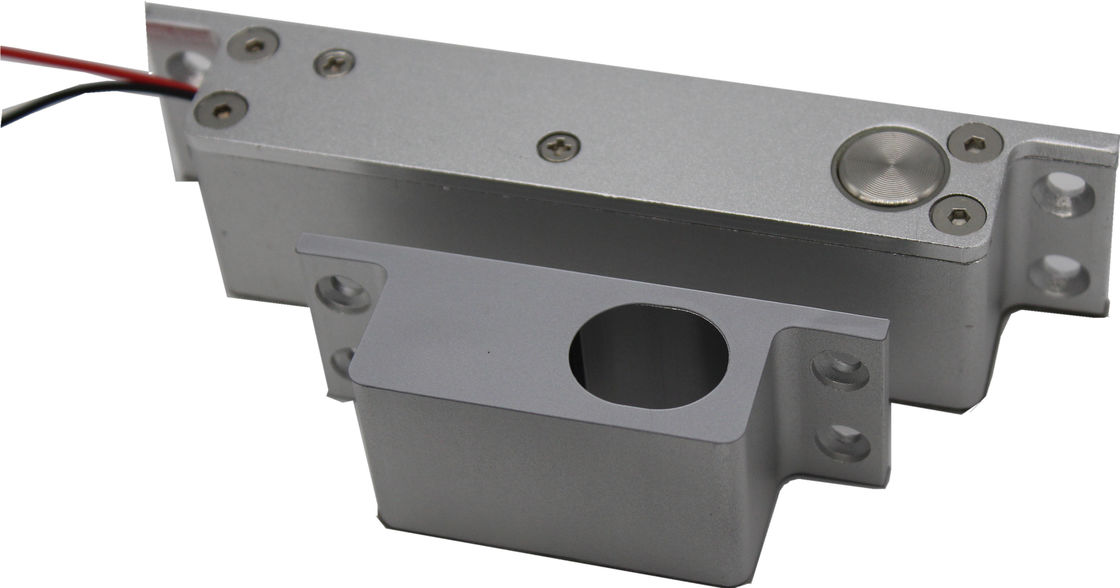Page 1 of 1
bit more robust "kitchen safe"
Posted: 25 Jan 2021, 12:37
by arc
Greetings,
little project...
I found these locks which drop a bolt into a door
https://external-content.duckduckgo.com ... f=1&nofb=1
I made a hardwood box with this inside keeping the lid shut, all screwed and glued. Inside put 2x timer clocks wired in series and a small 12V battery. Need to test how long the battery will last if the two timers fail, it's some hours at least.
Make sure the lock type you get is "fail open" rather than "fail closed"
Re: bit more robust "kitchen safe"
Posted: 25 Jan 2021, 15:22
by Stretched out
From repairing door and window locks, "fail open" mechanical components can [s]often[/s] sometimes turn into failed to open.
If your not in a position to actually smash it open, don't bet your life on it opening eventually.
A magnetic lock could be used and would actually release when the battery runs down.
Re: bit more robust "kitchen safe"
Posted: 25 Jan 2021, 15:33
by Shannon SteelSlave
Those electronic timer padlocks are not a good choice either. If they get wet, battery runs down, or become damaged, the lock mechanism stays closed, as it has to turn the lock/release cam to allow the latch button to be pressed. They can be cut easily with most cutting tools, like scissors.
Re: bit more robust "kitchen safe"
Posted: 25 Jan 2021, 16:13
by arc
Stretched out wrote:From repairing door and window locks, "fail open" mechanical components can [s]often[/s] sometimes turn into failed to open.
If your not in a position to actually smash it open, don't bet your life on it opening eventually.
A magnetic lock could be used and would actually release when the battery runs down.
A very fair point.
I don't know how the lock operates internally, it seems just a solenoid coil working against a spring that pushes a bolt out? Should be pretty fail-safe but it is made of chineesium so who knows...
But yes, I don't bet my life on it, the highest stake I bet on it is "embarrassment"
Re: bit more robust "kitchen safe"
Posted: 25 Jan 2021, 16:20
by Shannon SteelSlave
Here is the best thread I know of to explain how the electronic timer locks work :
viewtopic.php?f=12&t=12047
Re: bit more robust "kitchen safe"
Posted: 25 Jan 2021, 16:27
by Stretched out
Test how it works with the battery slowly draining, rather than the quick switch off.
Any stiction in the bolt mechanisms, either within the body of the lock, or the bolt binding in the side of the box, could leave it extended.
Re: bit more robust "kitchen safe"
Posted: 26 Jan 2021, 13:09
by arc
Shannon SteelSlave wrote:Here is the best thread I know of to explain how the electronic timer locks work :
viewtopic.php?f=12&t=12047
Thanks but a little off topic, as this device doesn't use the electronic timer padlocks it uses this type thing

Re: bit more robust "kitchen safe"
Posted: 26 Jan 2021, 13:12
by arc
Stretched out wrote:Test how it works with the battery slowly draining, rather than the quick switch off.
Any stiction in the bolt mechanisms, either within the body of the lock, or the bolt binding in the side of the box, could leave it extended.
I did try it with an adjustable power supply, it is quite good, below a threshold of reduced voltage the bolt will "drop out" with a clunk. The timer relays operate reliably to a lower voltage than when this happens, I tested them under load and poor voltage conditions too.
Re: bit more robust "kitchen safe"
Posted: 26 Jan 2021, 14:11
by Sergio
I have a setup with a similar lock, with both parts bolted to a piece of wood and a metal ring on a chain that's retained by the bolt. It's never failed but the other end of the chain is frozen into a large water bottle that's attached the other side of the room so should the lock jam I'll still get out but not for quite a few hours longer.
